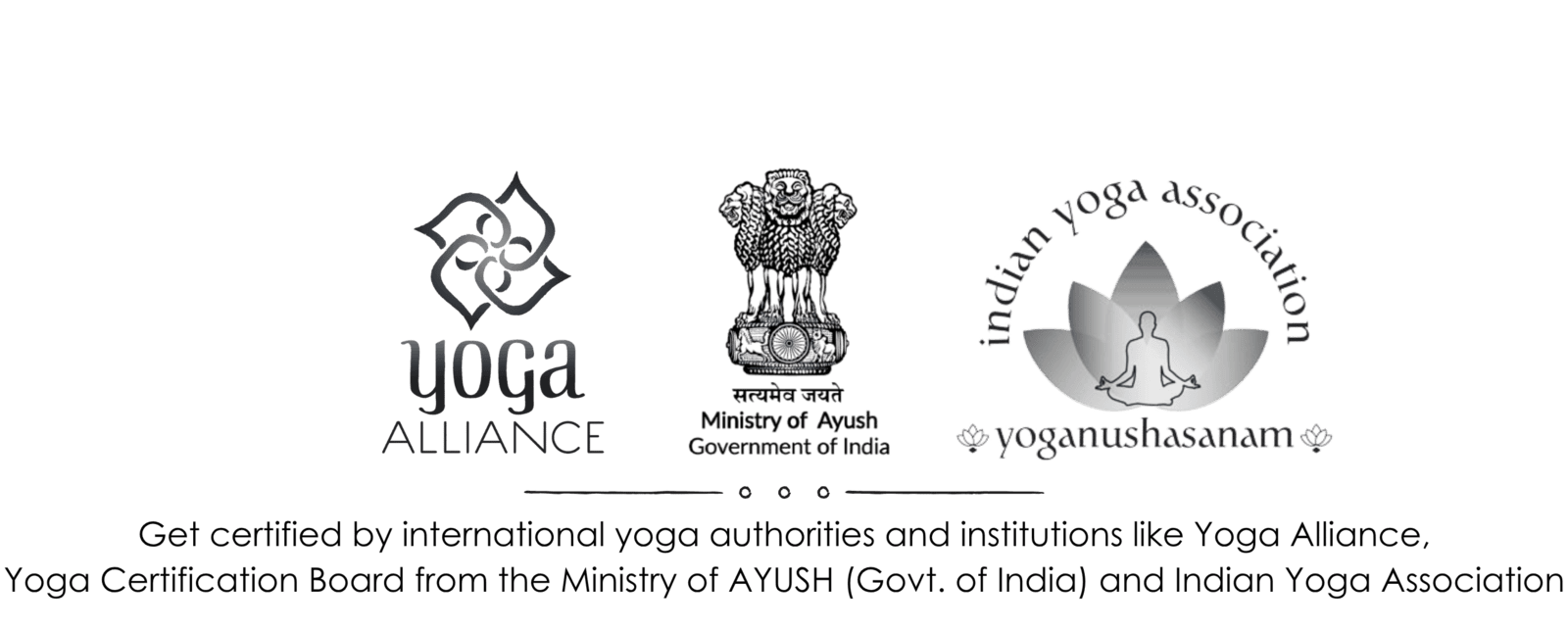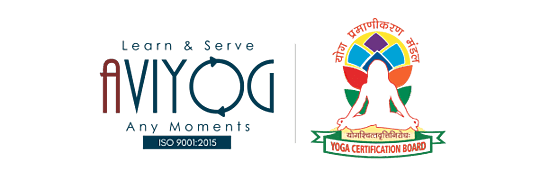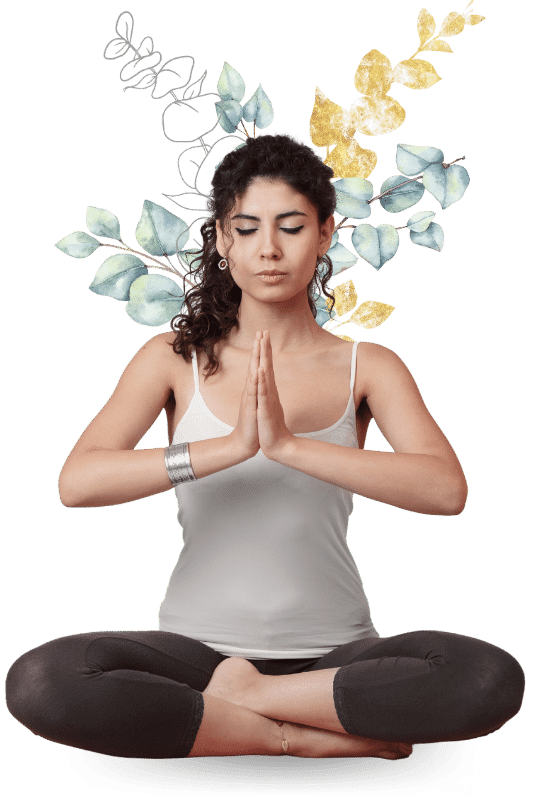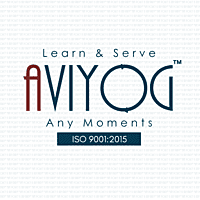

"श्रद्धा-वीर्य-स्मृति-समाधि-प्रज्ञया योगसिद्धिः।"
"Faith, strength, mindfulness, meditative absorption, and wisdom — the path to success in yoga."
200 Hour Yoga Teacher Training Course - RYT 200 (Online)
16,000+ certified teachers and 21+ years of experience
Turn your passion for yoga into a profession with our Yoga Teacher Training Course in India.
Get internationally recognized certification from Yoga Alliance, Yoga Certification Board (Ministry of AYUSH, Government of India), and Indian Yoga Association.
Includes Level-1 & Level-2 training, 100+ asanas, three flexible time slots, expert instructors, and career-ready certification.
Live Online RYT 200 – Next Batch: 03 Feb 2026 Limited Seats

200 Hour Yoga
Teacher Training Course
Anyone can enroll without prior experience of yoga. You Benefit by International Certification and are eligible to teach not only in India but any part of the globe. Open to all – Minimum age 18 years and above. Who understand Hindi properly.

Fees with discount ₹25000 ₹11550
UP TO 50% OFF for limited seats
03- Feb 2026 limited seats
Switchable Time Slots which fit your daily schedules along with your professional and personal duties.

Participate in live sessions & experience classroom experience virtually. Interact directly with Teacher and fellow yogis in real time

Yoga Alliance - RYT 200
Become a Registered Yoga Teacher (RYT-200)
Over 16000+ successfully certified students, the Yoga Course at aviyog Covers the nuances of Traditional Yoga.
You can get certified to teach Yoga on a global scale by completing the 200 Hour Yoga Teacher Training program offered and gets you ready to create your own studio and work as a Yoga teacher in all the top Yoga centers and institutions. AVIYOG offers 200 Hour Online Yoga Teacher Training Course which is accredited and recognized by World Top - Yoga Alliance, Ministry of AYUSH (Govt. of India) and Indian Yoga Association. This 200 hour TTC serves as a solid foundation for your glorious Yoga Career. You can complete this course in a span of two months and flourish as Internationally Registered Yoga Teacher (RYT).
What You Will Learn
Registered Yoga Alliance Program | YCB Level 1 & 2 | IYA Program
What is the duration of the Course?
Duration of the course is Two Months Online
- Weekdays Syllabus Sessions
Type 1 - Monday to Friday IST: Mon - Fri 5AM - 7AM, 7:30AM - 9:30AM & 4PM - 6PM (switchable time)
Type 2 - Monday to Friday IST : Mon - Fri 6AM - 8AM, 10AM - 12PM 6:00PM - 8:00PM (switchable time)
- Weekdays Business session / Teaching Skills : After end of Syllabus
- Weekend Extra Sessions
Group Practice Session : Sat (6:00 am to 8am) & Sun (6:00 pm to 8pm)
Course Attendance Criteria
Important Reminder:
Daily MCQ practice, regular revision, and self-study are essential to strengthen your learning, improve retention, and build exam confidence. These must be consistently followed within the course for best performance and success.
What you Get ?
Benefit of Yoga Teacher Training Course
- Deepen your practice: A teacher training course allows you to explore yoga in greater depth, both physically and mentally. You'll learn new techniques and gain a deeper understanding of yoga philosophy and its benefits.
- Improve your teaching skills: Whether you're an experienced yoga teacher or new to teaching, a teacher training course can help you refine your skills and develop new ones. You'll learn how to teach to different levels, how to sequence classes, and how to cue effectively.
- Become a certified yoga teacher: Upon completion of a teacher training course, you'll earn a certification that qualifies you to teach yoga in studios, gyms, and other settings.
- Enhance your career opportunities: Becoming a certified yoga teacher can open up a range of career opportunities, including teaching in studios, leading workshops and retreats, and even starting your own yoga business.
- Develop a sense of community: A teacher training course provides the opportunity to connect with like-minded individuals who share your passion for yoga. You'll develop relationships that can last a lifetime.
- Personal growth: Teacher training courses often involve a significant amount of self-reflection and personal growth. You'll learn to develop a deeper understanding of yourself and your own practice, which can have a positive impact on all aspects of your life.
MOST EXPERIENCED YOGA FACULTY
MOST EXPERIENCED YOGA FACULTY
Learn from young, dynamic and academically accomplished faculty — true masters in yoga, capable of transforming both your practice and your teaching journey.

H.C Dr. Janahvi Ingale
H.C Dr. Janahvi Ingale

Nikhil Kalbhor
Nikhil Kalbhor
Masters in Yogic Science & Certificate in Sanskrit

Akriti Sahu
Akriti Sahu
M.Sc Yogic Science & B.Sc Yogic Science

Anjali Mahto
M.Sc Yogic Science & B.Sc Yogic Science
Certified 200H Yoga Alliance & Pre/Postnatal
FAQs
FAQs
Now It’s Easier Than Ever to Become a Yoga Teacher
Now It’s Easier Than Ever to Become a Yoga Teacher
Even if you have a busy schedule, you can join us and manage your time efficiently with Online Teacher Training.
This program is designed to be time-friendly, allowing you to integrate your training gradually into your daily life. Moreover, you will develop a regular and strong yoga practice along the way.
Throughout the program, you will gain knowledge about the practical applications of yoga in lifestyle management, as well as learn how to teach yoga postures (Asanas), breathing.


